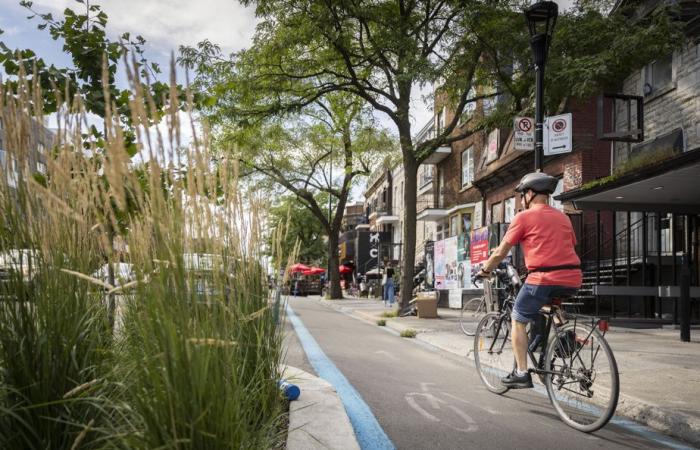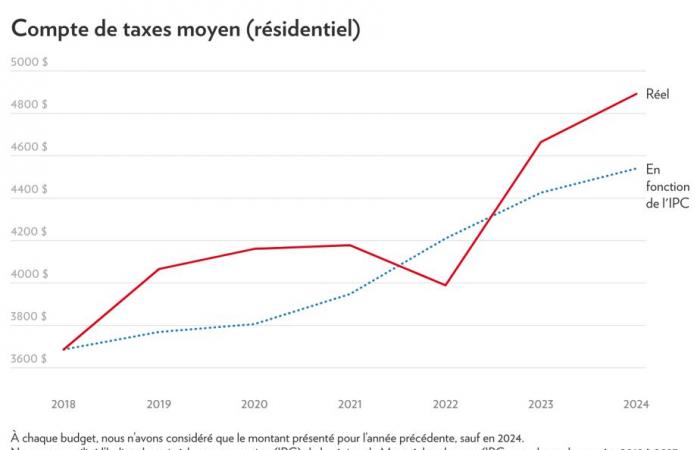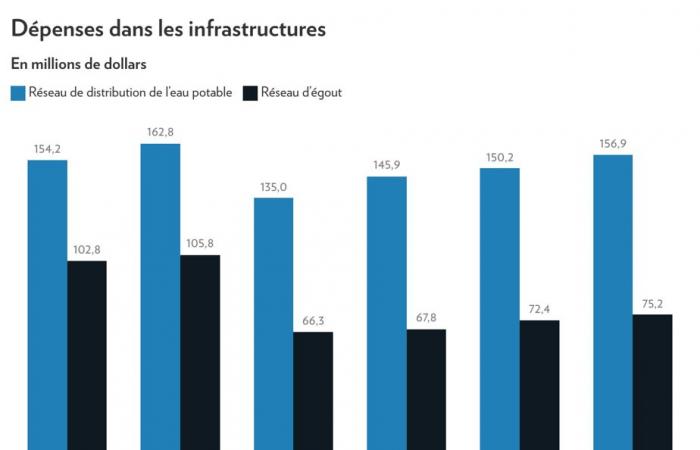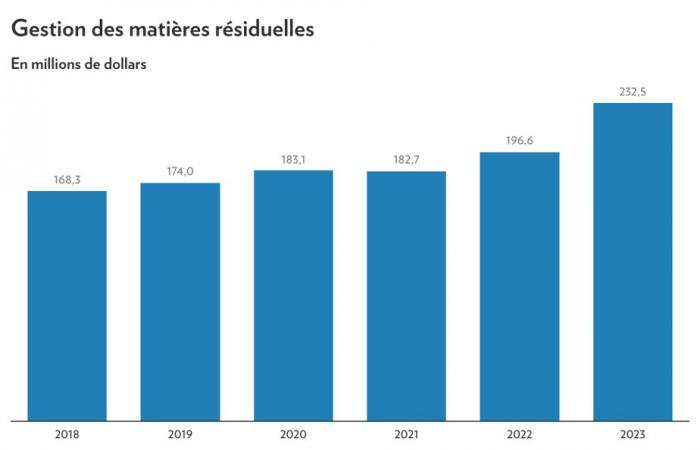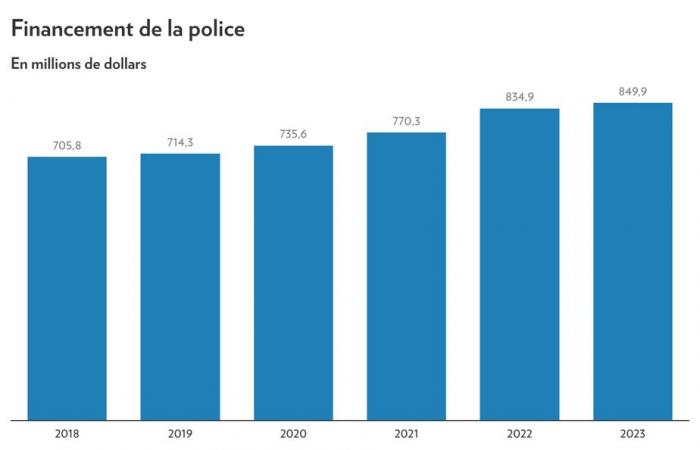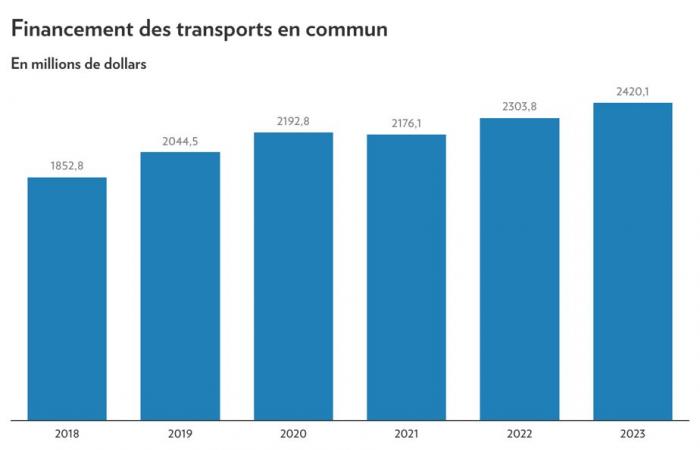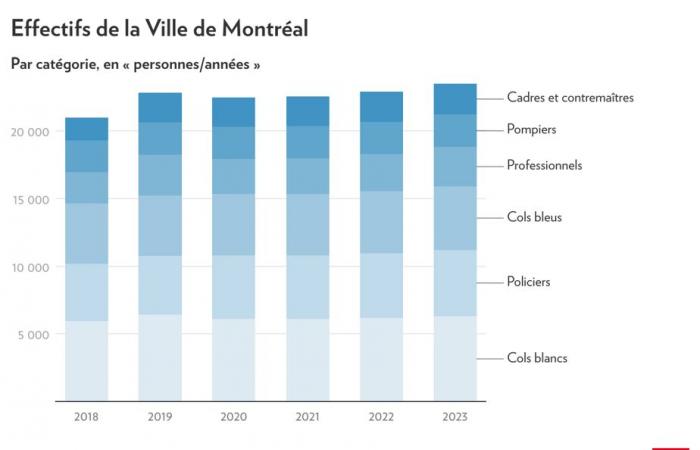A few hours before Mayor Valérie Plante’s latest budget, The Press looks back on the impact of his administration on the City of Montreal. Our charts show how taxes, spending and the number of employees have grown since 2017.
Published at 5:00 a.m.
Higher tax bills
Taxes increased by 33% between 2018 and 2024, reveals our analysis of budgets adopted over the years. This is a “worrying” increase for Justine McIntyre, commentator on municipal politics. The City is taking on new responsibilities that all taxpayers must assume. She is perplexed by the recent recommendation to create an Office of the French Language and Francophonie, for example. “These are structures that must be perpetuated,” she warns. It is very rare that we do the opposite, that we close municipal organizations.
Read “The Plante administration remains unclear on its next tax increase”
Unloved underground infrastructures
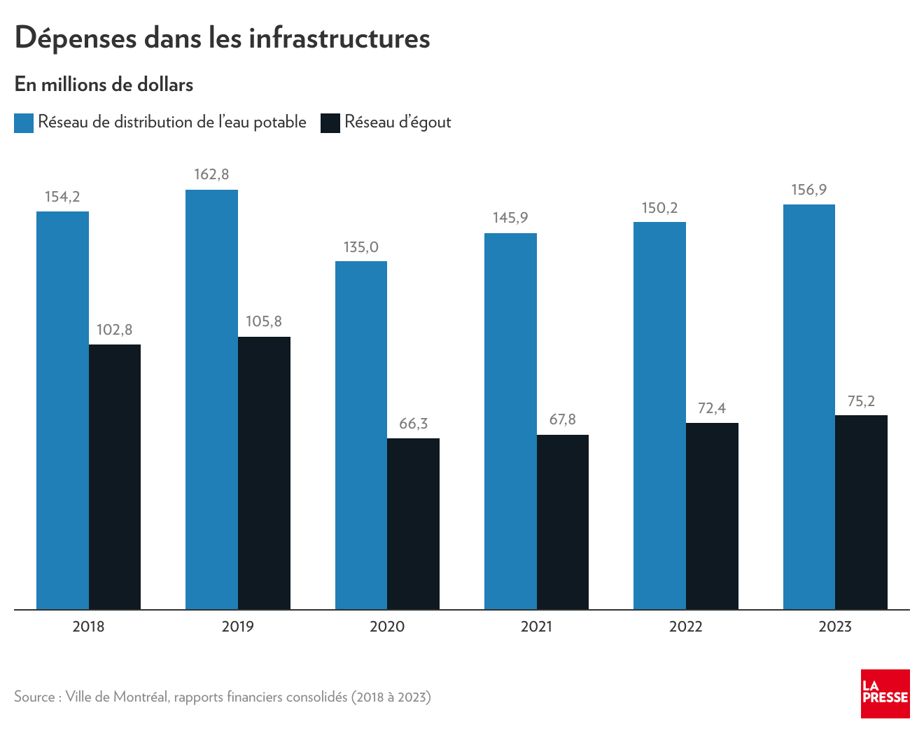
The Plante administration has slowed down the pace of maintaining Montreal’s pipes. Expenditures on the sewer network even decreased by 27% between 2018 and 2023. Justine McIntyre, who was also a municipal councilor in Montreal between 2013 and 2017, points out that a quarter of the wastewater network has an index of dilapidated D. It’s a barely passable grade on a report card. The water distribution network is in a better condition (indexes of B and C). This did not prevent a major pipe from breaking near the Jacques-Cartier Bridge on August 17.
Consult the annual portrait on knowledge of the state of the City of Montreal’s assets
Read a column by Maxime Bergeron
More expensive for residual materials
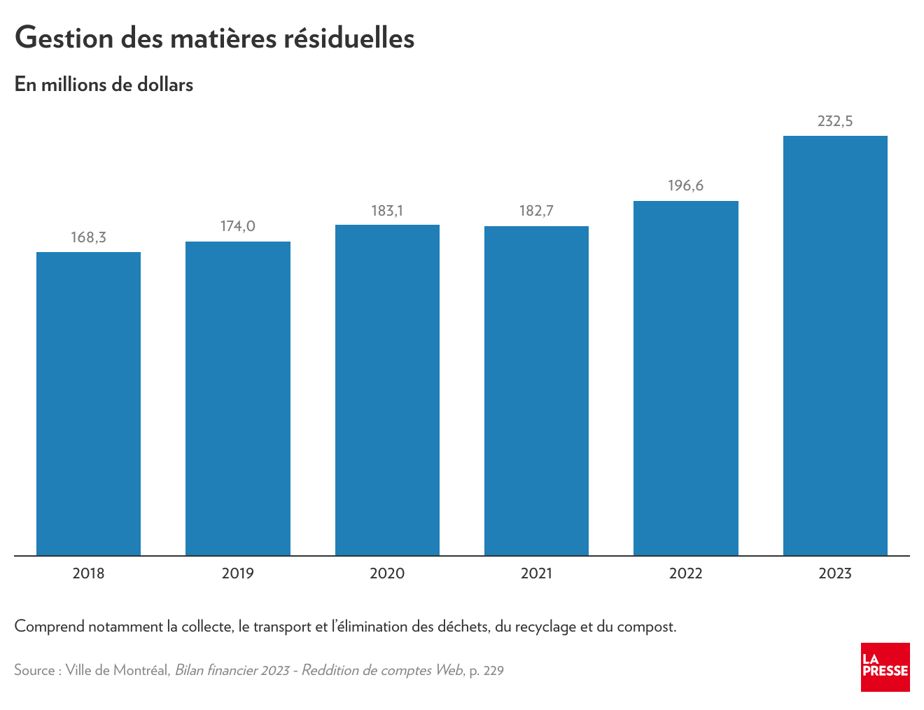
It is one of the expenditure items which has seen the strongest growth during the Plante years. It’s the fault of compost, the collection of which has recently been implemented in buildings with nine or more housing units, as well as in schools. But the rising costs of material collection and transportation contracts are also to blame. “We must ask ourselves whether the City could not better use its negotiating power,” argues M.me McIntyre, who also led the Real Change party for Montreal between 2015 and 2021.
Read “Solutions for composting in large buildings”
No defunding the police
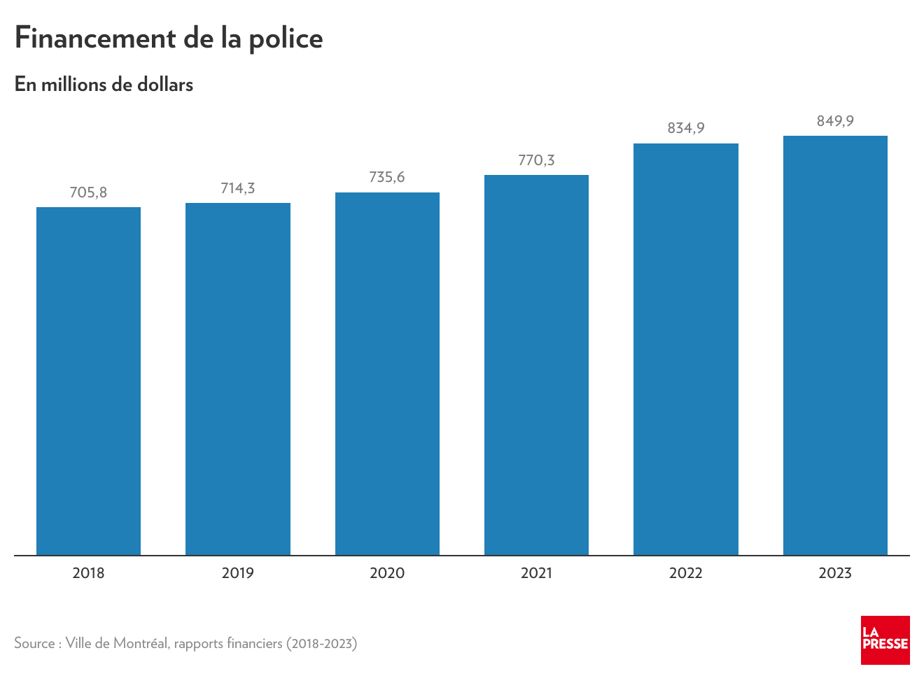
We cannot say that Valérie Plante defunded the police. The pace of spending (20.4% increase between 2018 and 2023) followed that of the whole (21.5%). “Mme Plante succumbed to pressure from Denis Coderre, who had a speech very focused on public security [pendant la dernière campagne électorale] “, estimated Justine McIntyre.
Read “Funding of the SPVM: “All the lights are red”, insists the union”
Public transport: the bill climbs
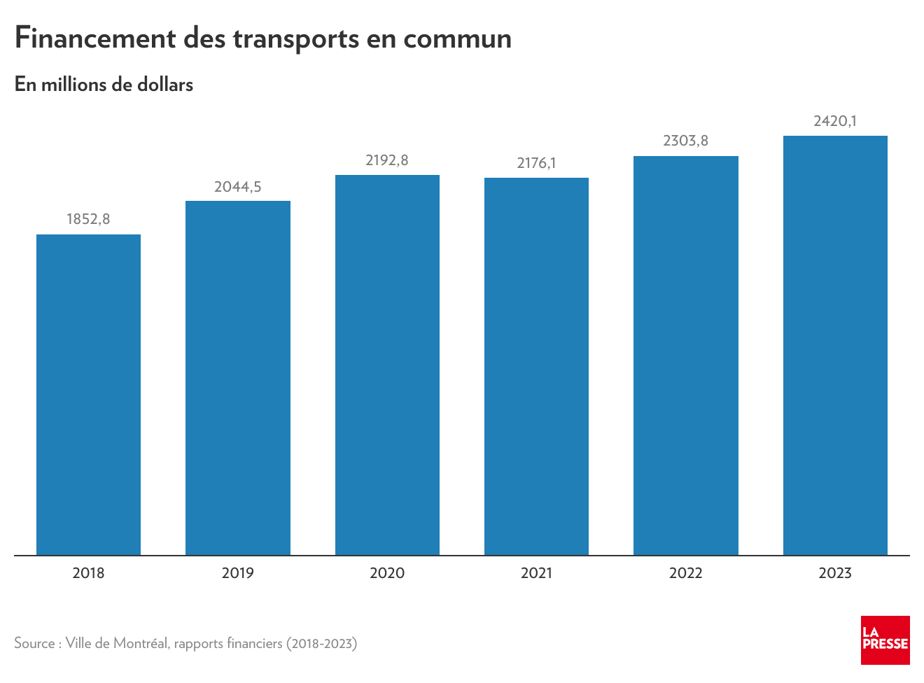
Here, the increase in expenses is not reflected in the quality of service, judges Justine McIntyre. The person who succeeds Valérie Plante will have a titanic challenge, according to her: to review the overly rigid collective agreements of the STM, as reported in the performance audit of the Ministry of Transport submitted at the beginning of November. Offering free admission to seniors was a good gesture, she said, “but with bad timing “. Furthermore, this free service should have been offered to other users who are more deprived than “boomers”, she adds.
Read “Public transport: reducing expenses by 350 million is possible, concludes a firm”
Selective hiring
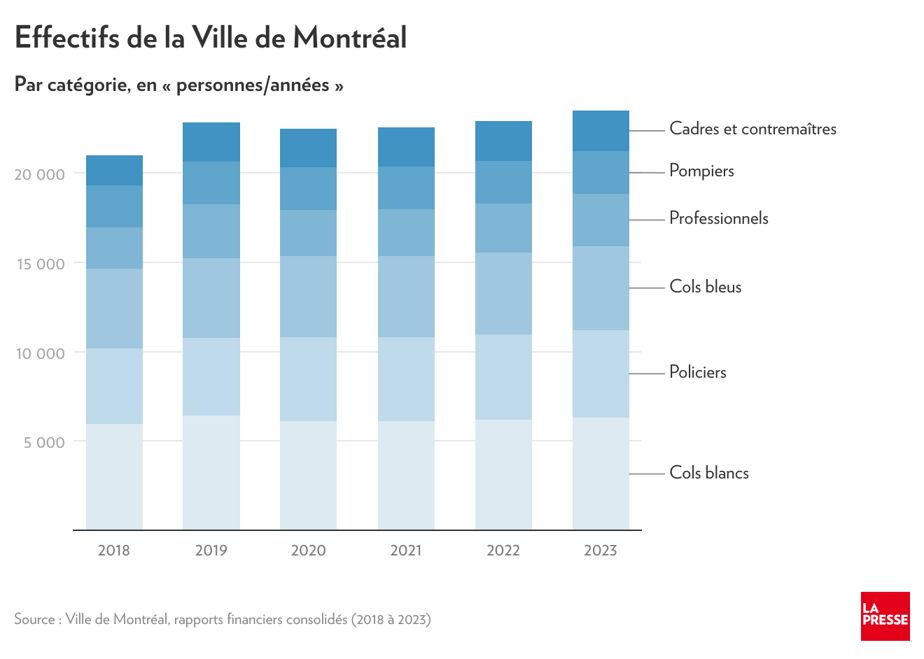
The City of Montreal’s workforce increased by 12% between 2018 and 2023. This is a rate identical to that of revenues, but slower than that of expenses. Although they are the smallest group of employees, managers and supervisors have grown the fastest (36% over six years). The number of blue-collar workers only increased by 1.5% during the years of the Plante administration.
Read “City of Montreal: a third of employees earn more than $100,000”
Methodology
We used the consolidated financial statements of the City of Montreal, rather than the non-consolidated financial statements. The consolidated financial statements include the City’s share of the Montreal agglomeration’s revenues and expenses. These are the ones that best reflect reality, according to Danielle Pilette, associate professor at ESG UQAM.

